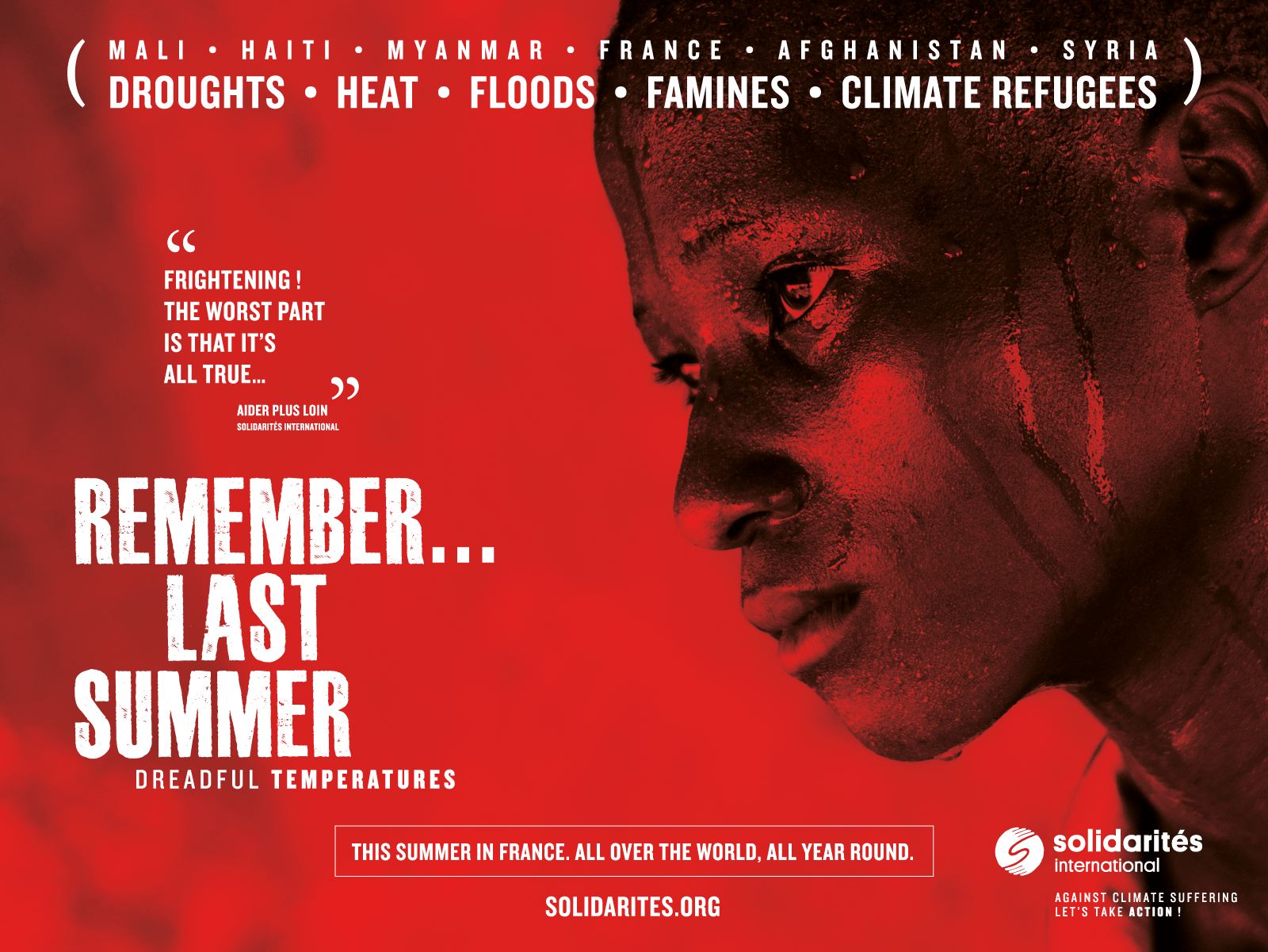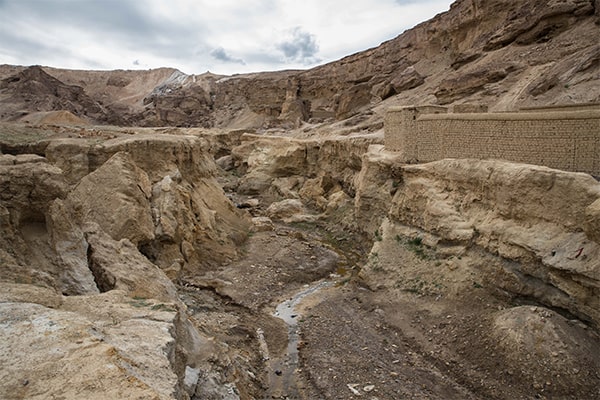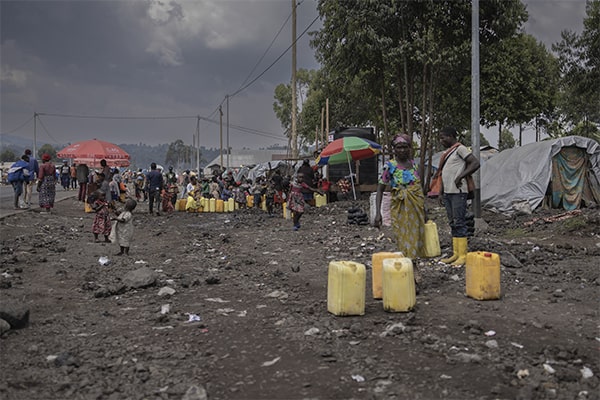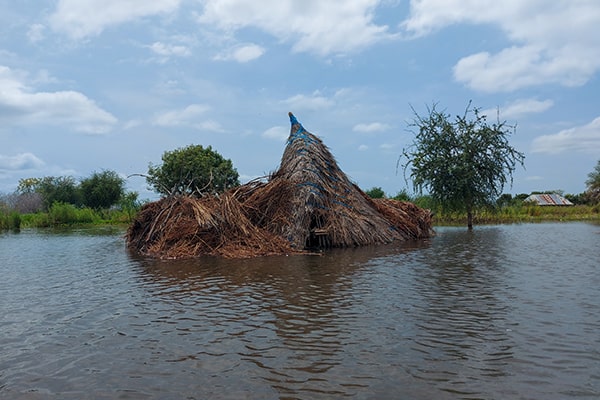Climate distress: when reality goes beyond fiction

Spectators
🔥🔥🔥🔥🔥
Press
🔥🔥🔥🔥🔥
SYNOPSIS
“I’m suffering from the heat!” Millions of Europeans said this last summer. Too much sun, not enough rain.
France roasted in the 2022 heatwave, and yet our country is full of air conditioning, swimming pools and offices. Our country does not depend solely on its farmers’ crops for food. We can go without watering our flowers. We can still have a shower. We can still drink the purified, stored water that is piped to our homes.
The heatwave affected Europe, where the average temperature is “only” 1.15°C higher than pre-industrial levels¹. If no action is taken, temperatures may increase by up to 5°C² by the end of the century. No one dares to imagine the nightmarish consequences that would have on our lives.
But for some people, the nightmare has already started, even though temperatures have not yet risen by 5°C.
In some countries, where there is no electricity or running water, where people rely on rain to work, grow food and live, where the heat kills both animals and plants, people are suffering and dying due to hotter temperatures. This is happening to more people, more often, more quickly.
According to the IPCC, between 3.3 and 3.6 billion men, women and children live in “contexts that are highly vulnerable to climate change”. Most of them live in Global South countries. These populations suffer from climate change on a daily basis, due to increasingly frequent floods and droughts, increasingly violent hurricanes, and rising sea levels that submerge coastal areas. And this climate distress does not just mean enduring hotter temperatures.
It also means that there is less water available, that water is of lower quality or may become salty, and that rising temperatures can facilitate the spread of certain diseases or destroy crops. These forms of climate distress threaten people’s livelihoods, and even their survival.
According to the World Health Organization (WHO), climate change is expected to cause “up to 250,000 additional deaths per year, from malnutrition, malaria, diarrhea and heat stress” during the next decade.
Not to mention more frequent extreme weather events and diminishing natural resources which, in conjunction with certain contextual factors, can exacerbate tensions and increase the risk of conflicts within populations.
In every country where we work, SOLIDARITÉS INTERNATIONAL can see the population’s climate distress, for example in the Sahel or South Sudan, where climate change causes torrential rains that cannot be absorbed by the bone-dry earth. Or in Syria where cholera, a waterborne disease, has reappeared after more than ten years of reprieve, due to low water levels in the Euphrates and drought, which has forced people to collect water from sources that are highly exposed to contamination.
This means that some people have no choice but to leave and seek decent living conditions elsewhere, like certain Afghan communities forced to flee chronic drought.
Over the last decade, an average of 21.5 million people around the world were displaced every year due to weather-related events. That is twice the number of people displaced by conflicts and violence³.
The people we support are particularly affected by climate change because they are highly exposed and vulnerable to climate hazards, even though they bear very little responsiblity for global emissions. What an injustice! The men and women who contribute least to climate change are the ones that suffer the worst consequences. How ironic…
The industrialized countries in the Global North have a responsibility, a debt to pay. Their leaders have acknowledged this fact during the international climate conferences (COP). They have committed to help Global South countries to protect themselves against climate change.
At the same time, affected populations have realized that industrialized nations have built their economies at the expense of the entire planet and its climate. They are asking us to limit our emissions and our consumption. They are asking us for help to protect themselves from the impacts of climate change, to alleviate their current and future climate distress.
We must answer their call…
And help them!
an observation based on real facts

© Oriane Zerah

© Guerchom Ndebo

© Bebe Joel Hillary
In the field, our teams are helping communities cope and adapt
To ensure that vulnerable populations can produce enough food for themselves despite climate hazards, our teams are increasing the resilience of agricultural, pastoral and fishery systems. This can be achieved by optimizing pasture management or promoting drought-resistant crops. In Chad, around Lake Fitri, we have drawn up disaster risk reduction plans with each community.
Our teams are also setting up sustainable water resource management mechanisms in areas that are prone to drought or flooding. This includes reusing wastewater for agricultural purposes or drawing up community water management plans in areas suffering from water stress. In Lebanon, our teams are strengthening river basin infrastructure to reduce flooding and increase the capacity of communities to manage disaster risks.
Following extreme weather events, our teams also build and rehabilitate more disaster-resilient housing.
testimonials



upcoming events on this theme
PHOTOCLIMAT
SOLIDARITÉS INTERNATIONAL is taking part in Photoclimat, the Paris social and environmental biennial. Come and discover our photo exhibition “Climate Distress” at Place Colette, Paris, from 5 September to 9 October 2023.
HUMANITARIAN TALK
SOLIDARITÉS INTERNATIONAL is organising the second edition of its Humanitarian Talk on 9 November 2023 at the Académie du Climat in Paris, on the subject of climate suffering. More information and registration link coming soon.
